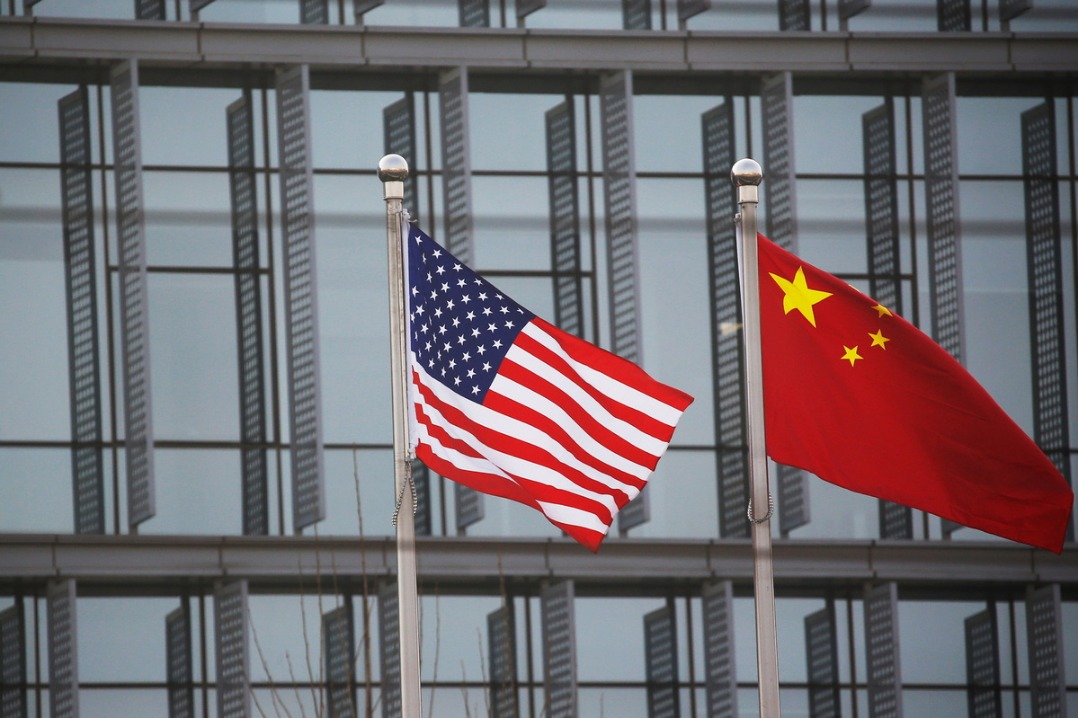Ending freedom of movement comes at a cost in UK

In a speech made on Jan 23, 2013, then-British Prime Minister David Cameron announced the next Conservative government would hold a referendum on Britain's European Union membership.
He thought he was lancing a boil of the internal party dispute to settle a long-running argument. Little could he have known that a decade later, Brexit would still cast such a shadow over British life, causing even deeper divisions.
"Hundreds of thousands of British people now take for granted their right to work, live or retire in any other EU country," Cameron said. But what was taken for granted in 2013 is, in 2023, taken away.
On the EU's official website, "freedom, security and justice without internal borders" is listed second only to the promotion of peace as an EU core value. But freedom of movement is perceived differently on a landmass of shared land frontiers than it is on a geographically separate island.
Ending freedom of movement was painted by many "Leave" campaigners as meaning freedom from EU citizens moving freely to the United Kingdom to work — overlooking that many Britons did the same — and was integral to the "taking back control" message that proved so persuasive in the referendum victory of the Leave camp.
But while taking back control may have tightened up Britain's legal borders — although Brexit has made the illegal entry situation worse — changing the face of Britain's workforce has also made life harder for Britons who exercised that freedom to work in Europe.
Figures from the Office for National Statistics in May showed that in the pandemic-affected year to June 2021, 12,000 more EU nationals left the UK than came in.
In 2021, just 43,000 EU citizens were granted visas for work, family, study or other purposes, compared to figures of up to 10 times that number in each of the six years up until March 2020.
Industries and regions were affected differently. The agri-sector, which has heartlands including some of the most pro-Brexit areas, saw a 28 percent decline in EU worker numbers.
In July 2021, the Recruitment and Employment Confederation estimated there was a shortfall of 30,000 haulage drivers in the UK. Geographically, London was the hardest-hit area in losing EU labor with a 10 percent drop overall, and 30 percent in its hospitality sector.
Leaving NHS
Even before Freedom of Movement was abolished, EU staff members were leaving the National Health Service. A January 2023 report by the Nuffield Trust showed that this had led to increased hiring from countries on the World Health Organization's "red list", whose own health services need safeguarding.
An article in The New European newspaper in June quoted Home Office figures, showing a rise of more than 40 percent in the number of study or work-related visas granted in 2021 compared to 2019, and an increase of 164 percent in the number of sponsored study visas for Indians. Rather than reducing immigration, Brexit seems to have rerouted it.
An end to freedom of the movement has not meant the freedom from the movement that some Brexit voters expected, and many Britons whose work relied on that freedom have been penalized. One example is the music industry, which is worth 5.8 billion pounds ($7.08 billion) and supports 200,000 jobs.
The Independent news site reported that the EU offered Britain a concession for visa-free touring, but the UK rejected it because it thought it went against ending freedom of movement. So the Brexit agreement contained no such provision, meaning that, since Jan 1, 2021, UK musicians working abroad must comply with the specific regulations relating to each of the 27 EU member states.
On the official Vote Leave website, one of the most tumultuous periods in British history — with its fallout still being settled — is summed up in the briefest of statements.
"Thank You. It's because of everyone involved, all across the country, that we achieved this magnificent result. This is your victory," it stated.
Brexit's winners may have found the spoils of victory are not what they expected. Meanwhile, those who lost their freedom of movement would interpret that last sentence in a very different way.
julian@mail.chinadailyuk.com



































